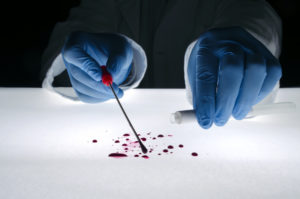Is it true that DNA evidence has changed the way criminal cases are both investigated and prosecuted? Yes. It can help people who are innocent prove they were not the involved party. It can help the prosecution prove that a person was at the scene of a crime. DNA matches can be made with blood, hair, and saliva and is often thought of to be 100% accurate in every situation. It is not.
Keep reading to find out the limits of DNA testing. If you have been accused of a crime and there is DNA evidence linking you to said crime, this does not mean that you have no options. You can always call Law Office of Michael L. Fell at (949) 585-9055 to get a free legal consultation and find out what your real options are.
What is DNA and how does it work?
All humans have 99.9% of their DNA in common with all other humans. That said, that 0.1% sets us apart. When a scientist analyzes DNA, they can isolate genetic markers that make each type of DNA unique. When investigators at a crime scene find anything that potentially has DNA, they can collect samples of it and it can be tested against a suspect and matches can be searched for in publicly available DNA records.
DNA testing is capable of failing
The truth is that, when done properly, DNA testing is extremely accurate. The only real way that two people could potentially have the same DNA is if they were identical twins. That said, just because the DNA process is accurate does not mean testing is. The issues that can lead to the arrest and prosecution of innocent people include:
- Badly collected samples. If a DNA mixture has information from more than two people, it can have a flawed genetic profile – and much of the DNA evidence taken is taken from a space that has information from more than two people. For example, if a sample is collected from a door handle, there is likely genetic material there for an untold number of people. This can result in serious flaws of results and we may be able to challenge it.
- Bad lab procedures. In some cases, especially particularly busy jurisdictions, crime labs may handle thousands of samples at once. There are very serious procedures put into place to prevent against mix-up but it is possible.
As you can see, DNA evidence is not 100% trustworthy. It is true that if done correctly, it is nearly infallible. It is also true that as long as people are the ones collecting and analyzing samples, there is room for human error.
If you have been arrested for a crime in which DNA evidence is the primary type of evidence then your criminal defense attorney may work to disqualify this evidence. Contact Law Office of Michael L. Fell at (949) 585-9055 for a free legal consultation.


